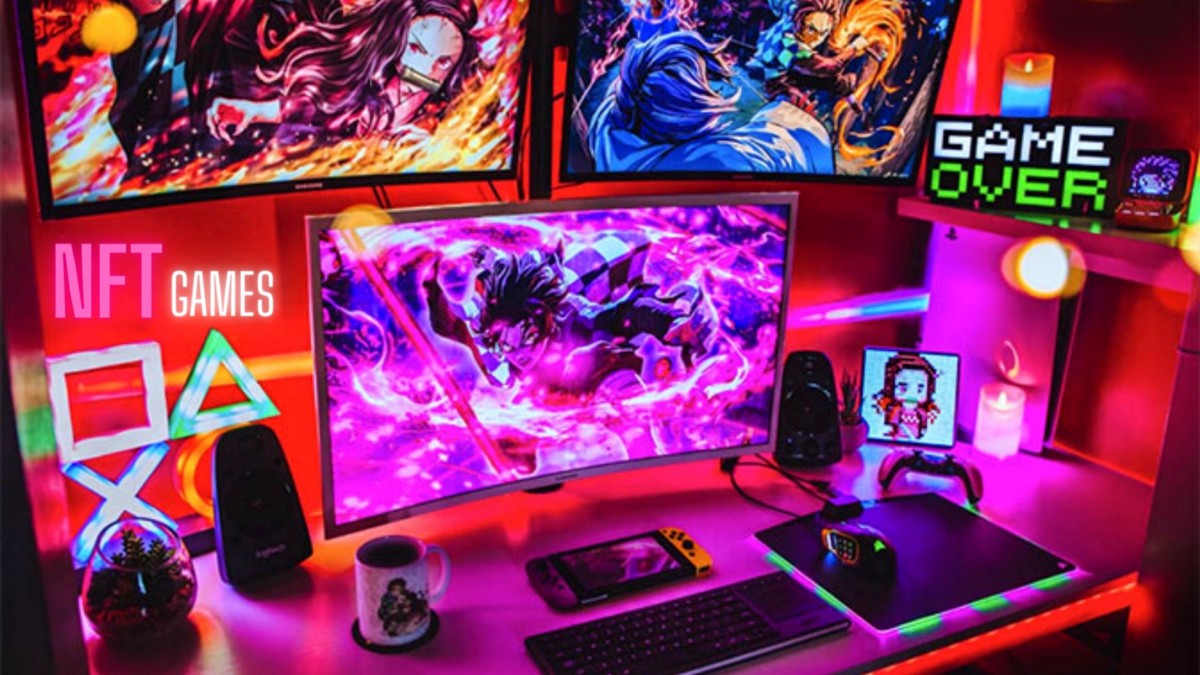DataDrivenInvestor
Jun 27
Save
The gaming industry is changing because of Web3, which has introduced innovative new ways to play that use blockchains, cryptocurrencies, and non-fungible tokens (NFTs) it is also called NFT games.
In the first half of 2022, Web3 games drew 1.22 million unique active wallets, or 52% of all blockchain activity.
For Web3 metaverse participants, the capacity of blockchains and NFTs to provide true ownership and interoperability in games offers up a number of options.
Web 3.0, often known as Web3, is anticipated to have a big impact on how we use the internet. Gaming is one such sector that produces the majority of Web3’s features and applications.
By providing new opportunities for both game developers and players, the aim is to blur the boundaries between the virtual and physical worlds.
The gaming industry is changing because of Web3, which has introduced innovative new ways to play that use blockchains, cryptocurrencies, and non-fungible tokens (NFTs). It is democratising a variety of gaming-related features and offering players a chance to succeed in the industry.
In essence, it’s an environment where players may profit by investing in and trading digital assets. The traditional rules of gaming are being abandoned as producers make money by producing valuable digital goods and monetizing them through the transfer of ownership.
It’s a paradigm that provides users with a tonne of power, and rather than focusing that power on just one game, it can be used across a variety of games throughout the ecosystem.
The popularity of NFTs has exploded recently, making them the new face of Web3 gaming. This is because they allow players to practically own any form of exclusive in-game asset or object, which is something that earlier gaming models did not allow. Gamers will find an ecosystem designed for them rather than simply big tech with these new Web3 opportunities. There are numerous new methods to earn money and succeed as a result of the ecosystem’s promise of digital asset ownership and interoperability.
Web3 games keep all user information private and anonymous, and they neither track nor market it to third parties. Due to the fact that blockchains prevent double spending, there are no fraudulent payments, in contrast to traditional credit and debit payment systems. In this way, the transactions on gaming sites are protected. Web3 games have low production costs, and players are given tokens or NFTs(NFT games) so they can stockpile them and make decisions on the game’s future operations.
The statistics are shocking when researchers contextualise the findings. 49 percent of all blockchain usage in 2021 was attributed to gaming. Blockchain-based games were the most popular category, with more than 1.4 million active wallets connected to them on an annual basis. Similar to this, in the first half of 2022, Web3 games drew 1.22 million unique active wallets, or 52% of all blockchain activity. It’s also important to note that blockchain-based games have a steadily expanding player base.
The blockchain-based game market grew by 2000% in the previous year, according to a DappRadar and Blockchain Game Alliance research from Q1 2022. Surprisingly, in the first quarter of 2022, $2.5 Bn in investments in the blockchain gaming industry were made, compared to a total of $4 Bn raised for the sector in 2021. This demonstrates the kind of investment that Web3 games hope to receive and how NFTs are facilitating the change from what will soon seem like a thing of the past.
In previously unheard-of ways, NFTs are boosting the rise of Web3 gaming. It also necessitates knowledge of how to put it into reality, and many of its promised benefits have yet to be realised. The creation of web games is facilitating the shift as the world slowly moves toward Web 3.
Web3 is still in its infancy, but every day, more and more games and decentralised applications (Dapps) are being created and are becoming immensely popular among its users. For Web3 metaverse participants, the capacity of blockchains and NFTs to provide true ownership and interoperability in gaming offers up a number of opportunities.
Understanding how Web3-based gaming will transform the sector still requires a lot of studies. Players should be allowed to invest in digital assets at fair rates and build them through their own active participation in games in the future, according to industry participants, who must work together to address this issue.
New blockchain-based games and NFT games will soon offer more flexible NFT participation as well as the strong backing of the blockchain to guarantee security and transparency.
List Of Top Gaming Companies
—
—
—
empowerment through data, knowledge, and expertise. subscribe to DDIntel at https://ddintel.datadriveninvestor.com
AboutHelpTermsPrivacy
NFT and Blockchain Technology Updates | Blockchain Analyst
CYBAVO Inc.
Gwen Stefani
in
DataDrivenInvestor
CryptoNewsPipe
TheRealGuelette
Help
Status
Writers
Blog
Careers
Privacy
Terms
About
Knowable
Author
Administraroot

